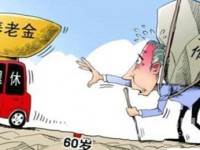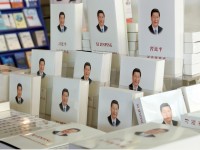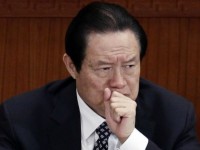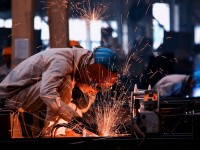
Yu Keping, Deputy Director, CPCCC Compilation and Translation Bureau
May 12, 2015
Modernizing state governance in China depends on the successful promotion of rule of law, to stimulate orderly participation of the public and to maximize the public interest.
William Jones, Washington Bureau Chief, Executive Intelligence Review
Apr 08, 2015
Substantial international attention has been focused on this year’s meeting of China’s National People’s Congress (NPC) and the Chinese People’s Political Consultative Committee (CPPCC), much of it misguided and/or malicious. But there is a real reason for the Congress’s importance.

Minxin Pei, Tom and Margot Pritzker ’72 Professor of Government , Claremont McKenna College
Mar 18, 2015
Casual observers of the proceedings of the annual National People’s Congress (NPC) may be tempted to dismiss them as a ritualistic exercise with little impact on the lives of the Chinese people. Such a conclusion, while not totally groundless, nevertheless misses an important public policy debate revealed during this year’s NPC session – reforming China’s troubled retirement system. The challenge confronting Beijing is simply the lack of money to fund the explosive growth of pension benefits.
Nathan Gardels, Editor-in-chief, THEWORLDPOST
Mar 17, 2015
In Western media, the National People's Congress -- China's legislative body which just ended its annual three week session -- is perfunctorily conjoined with the phrase "rubber stamp." This characterization is less and less true every year and does a disservice to understanding the most significant historic shift taking place in China today: the long march toward "rule according to law" from administrative fiat.
Feng Zhaokui, Honorary Academician, Chinese Academy of Social Sciences
Mar 02, 2015
Discussion of whether or not China will lead the world through a “third industrial revolution” ignores the China’s excess supply of low quality products, polluted air and water, and an information sector that isn’t completely integrated with manufacturing. China still has a ways to go in industrializing while facing changing international circumstances.

Tom Watkins, President and CEO of the Economic Council of Palm Beach County, FL
Mar 02, 2015
Xi Jinping: The Governance of China, is the Chinese leader’s book on proper leadership in China, with a heavy focus on ousting corruption, a direct threat to the legitimacy of the party. While the party cracks down, it also has made it more difficulty for anonymous web users to expose party privilege abuse on micro-blogs, begging the question of whether this book favors slogan over good governance.

Daniel Bell, Chair Professor, Schwarzman Scholars program, Tsinghua University
Feb 24, 2015
The anti-corruption drive -- the longest and most systematic in Chinese history -- is changing the way public officials do business. Any sensible official will now think twice before accepting a bribe.

Zhang Monan, Deputy Director of Institute of American and European Studies, CCIEE
Feb 04, 2015
China’s “new normal” economic development is necessary to achieve more valuable GDP growth at a more reasonable speed and sustainability. Key components of these reforms will be decreased growth, higher-level manufacturing, narrowing of rural and urban wealth, capital exports, a consumer middle-class, and new small businesses.
Qin Xiaoying, Research Scholar, China Foundation For Int'l and Strategic Studies
Jan 09, 2015
Xi has said on multiple occasions that the next steps of China’s reforms will be tough. But the decisiveness and resolution he has displayed in handling corrupt officials such as Zhou have won him public confidence.
Back to Top

- China-US Focus builds trust and understanding between the U.S. and China through open dialogue among thought leaders.
- Our Offerings
- Topics
- Videos
- Podcasts
- Columnists
- Research Reports
- Focus Digest
- Stay Connected
-
Thanks for signing up!
- Get the latest stories from China-US Focus weekly.